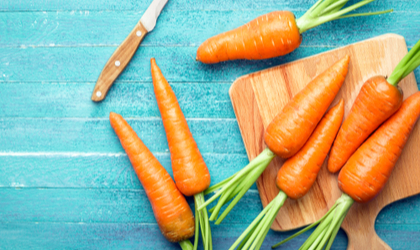
In theory, you should be able to get all of your nutrients from a well-balanced, whole-food diet. Sometimes, however, it’s just not possible. Modern farming methods, special dietary requirements, increased levels of stress and burnout – these are just some of the reasons why you may struggle to hit each nutritional note every day.
Although supplementing with vitamins is no surrogate for healthy eating habits, it can help cover any nutritional shortfalls you might encounter and serve as a useful insurance policy.
Here, we take a closer look at why you might consider supplementing with vitamins.
Processing methods
The 21st century has witnessed a boom in modern-day farming techniques, with the processing and refining of food coming to the fore.
The problem is, many processing methods deplete nutrients from food. For example, refining grain removes germ and bran, which contain important nutrients, like fibre, iron and B vitamins.
The trend to highly process crops also means much of the food lining our supermarket shelves is high in unhealthy fats and added sugars, offers little or no nutritional value and no longer resembles the animal or plant materials from which it derives.
Supplementing with high-quality vitamins and minerals may help plug some of these nutritional gaps.
Nutrients in soil
Aside from the processing and refining of food, our modern intensive agricultural methods also deplete the soil of its nutrients. Indeed, the crops that grew decades ago were far richer in minerals and vitamins than the varieties most of us eat today.
In a landmark study conducted at the University of Texas, researchers found that between 1950 and 1990, 43 different vegetables and fruits experienced reliable declines in calcium, iron, phosphorus, vitamin C, and vitamin B2 and protein.1
The key to healthier produce is healthier soil. So, if you want to eat nutritious plant food, the advice is to buy from local organic farmers. But this isn’t always accessible or affordable. Supplements offer an easy and convenient way to cover any nutritional shortages.
The pace of modern life
We’re living in a society that glorifies busyness. And the fast pace of modern means many of us are forgoing healthy eating habits and enjoying fast food instead. And you can see the appeal: takeaways are convenient time-savers. Choosing ‘junk food’ over traditional home cooking allows people to focus on ever-increasing work, family and social demands.
While we always advocate healthy eating first supplementing with high-quality vitamins can act as a useful buffer when the rhythm of life gets in the way of making smart dietary choices.
What is the best vitamin to take for stress and anxiety?
Increased stress levels often go hand in hand with the fast pace of modern life. And when the body is under stress, it struggles to hold onto certain nutrients, especially the B vitamins, which play an important role in energy production, mood and immune function. Taking a high-quality B complex, for instance, may help support your body against the implications of stress.
Special dietary requirements
In recent years, there’s been a huge move towards plant-based diets. And while eating more plants offers countless benefits for overall health, you can still run into nutritional gaps. Those on plant-based diets aren’t able to get enough vitamin B12, vitamin D3, iodine, and the omega-3 fatty acids, EPA and DHA, which are mainly found in animal products. And that’s why supplementation is so important.
Vitamin D deficiency
Playing a role in normal immune, bone, and muscle function, vitamin D3 is critical for good health. Although you can find vitamin D3 in a range of foods, such as oily fish and dairy, the most effective way to metabolise it is via direct sun exposure. While this is possible in spring and summer, the body struggles to make enough vitamin D3 in the darker, colder months. As such, UK government health officials recommend everyone supplement with 10µg of vitamin D3 daily during autumn and winter.2
Supplementing with vitamins should never replace a healthy lifestyle. On the contrary, they should only ever serve as an insurance policy to plug any nutritional gaps, which are inevitable in our frenetic modern lives.
Want to learn more about taking vitamins? Have a chat with one of our expert Nutrition Advisors, who are always happy to offer free, confidential advice. Simply click here or at the chat button located at the bottom right-hand of our website.
References
-
American, S. (2021). Dirt Poor: Have Fruits and Vegetables Become Less Nutritious?. https://www.scientificamerican.com/article/soil-depletion-and-nutrition-loss/
-
Vitamin D. (2021). https://www.nhs.uk/conditions/vitamins-and-minerals/vitamin-d/
Related Posts
Disclaimer: The information presented by Nature's Best is for informational purposes only. It is based on scientific studies (human, animal, or in vitro), clinical experience, or traditional usage as cited in each article. The results reported may not necessarily occur in all individuals. Self-treatment is not recommended for life-threatening conditions that require medical treatment under a doctor's care. For many of the conditions discussed, treatment with prescription or over the counter medication is also available. Consult your doctor, practitioner, and/or pharmacist for any health problem and before using any supplements or before making any changes in prescribed medications.

Keri
Keri Filtness has worked in the Nutrition Industry for 19 years. She is regularly called upon for her professional comments on health and nutrition related news. Her opinions have been featured by BBC3, Prima, Vitality, The Mirror, Woman’s Own and Cycling Weekly, amongst others. She has also worked one to one with journalists, analysing their diets and health concerns and recommending changes and additions, where appropriate.



